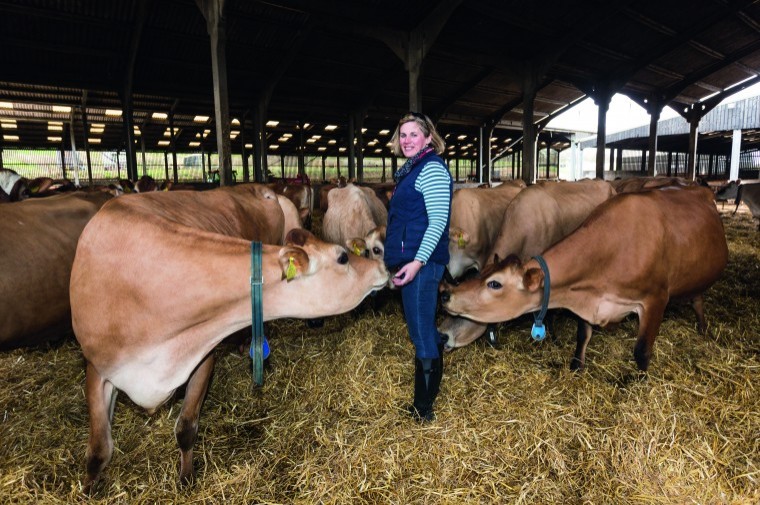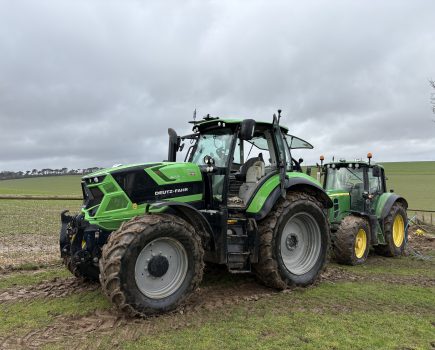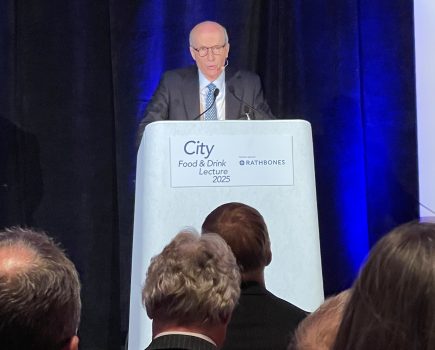Happy New Year to one and all, and I hope all our readers had a lovely, peaceful Christmas, although I am sure restful would be a step too far! As usual, we were all at home and working over Christmas, but we did manage to have some fantastic family time, albeit in between milkings etc.
As we welcome in the New Year, I am sure you will have read that we are still under bluetongue restrictions in a TCZ (temporary control zone); this has now been extended to a 10km radius and is a continually moving target.
Bluetongue affects cattle, sheep, other ruminants such as goats, deer and camelids such as llama. A virus spread by certain species of biting midges (Culicoides), many of which can be found throughout Great Britain, it does not affect people or food safety.
Midges are infected with the virus when they bite an infected animal and the virus spreads when the infected midge then bites an uninfected susceptible animal. Once the midge has picked up the bluetongue virus it will be a carrier for the rest of its life.
Midges remain active between April and November, depending on the weather, wind, rain etc. Bluetongue can also be spread through biological products such as blood, semen, embryos or the movement of infected animals. Unfortunately, at present there is no vaccination available.
The signs of bluetongue in cattle include lethargy, crusty erosions around the nostrils and muzzle, redness of the mouth, eyes etc, nasal discharge, fever, milk drop, not eating or abortion. Signs of bluetongue in sheep are similar, with a fever, ulcers in the mouth, discharge, swelling of the head, lips etc, lameness, breathing issues, abortion or death. The mortality rate in sheep is particularly high. In calves it can result in blindness or the death of the calf within a few days of birth.
I attended a well-run meeting attended by many local and some not so local farmers at Staple Village Hall in December. It was organised by the Farming Community Network (FCN) and attended by the NFU, Trading Standards and the Animal and Plant Health Agency. DEFRA’s absence was noticeable. It was extremely disappointing that the department couldn’t take the time to explain the process and their actions at the meeting or indeed answer any questions on the carnage that they have caused. It seems to me that they are following a policy and not the science. A serious policy review is urgently needed.
Trading Standards have promised not to prosecute anybody who contravenes the licence restrictions on welfare grounds if the correct licences have been applied for; if farmers have shown they have done all they can to meet the requirements.
Forage Aid made contact to say the charity is ready to support all farmers, whatever their need. Many farmers will be unable to sell store cattle/sheep from folds and away at keep. Welfare grounds are paramount and if farmers don’t have enough forage, help will be at hand.
We are currently blood testing all our cattle (as are all farmers in the TCZ) to see if they have antigens to the BTV3 virus. Animals with antigens are humanely destroyed in an attempt to control the spread of bluetongue.
At home we have been under restrictions since the beginning of December (some parts of east Kent have been under restrictions since the beginning of November) This, in essence, means that we cannot move any ruminant animals on or off our holding unless we apply for a movement licence on welfare grounds.
Animal movements out of a control zone are not allowed. As you can imagine, being unable to move calves to our youngstock unit is proving to be a challenge, especially when turnout is not an option with the ground so wet and the weather being its usual unhelpful self.
For assistance with forage, contact Emily Egan at the Addington Fund by emailing emilyegan@addingtonfund.org.uk
As always, for pastoral care contact FCN on 03000 111999.
Until next time stay safe and keep well.







